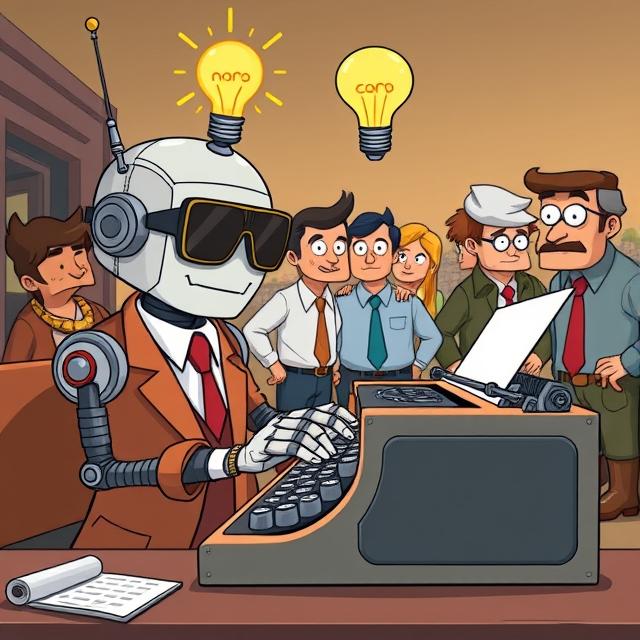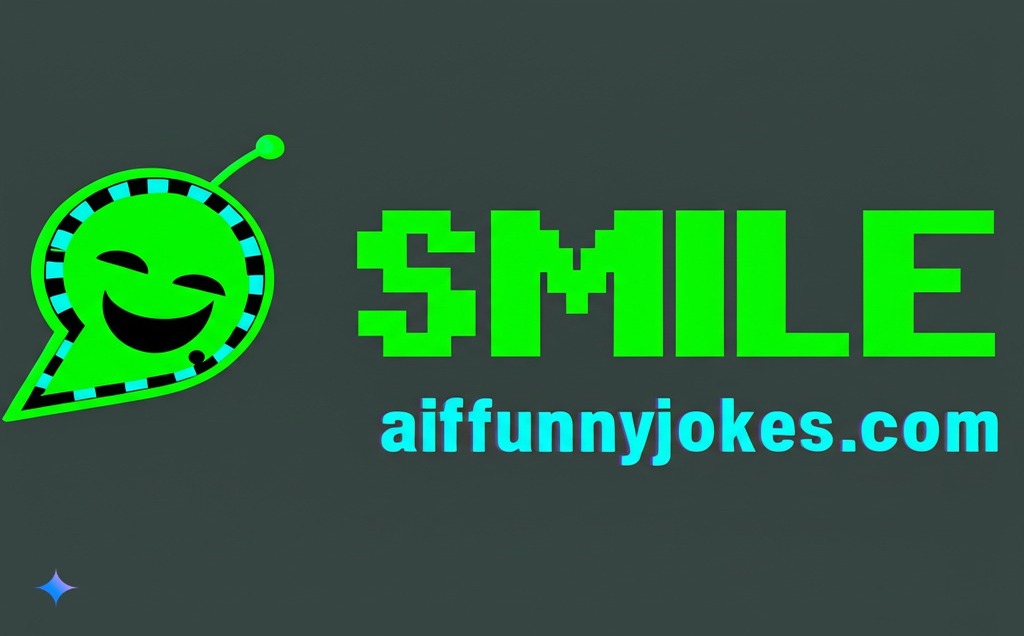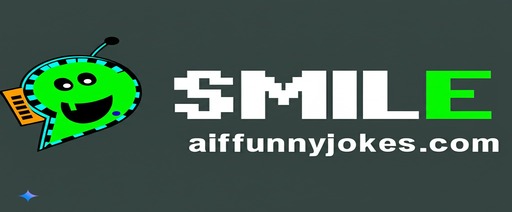
Did you know that AI comedy writing in Hollywood is already happening behind the scenes? That joke that made you laugh in your favorite sitcom might have been partially written by a computer. Weird, right? But it’s true – artificial intelligence is quietly becoming a writing partner in entertainment, and most viewers have no idea.
The truth is, AI comedy writing in Hollywood represents a major shift in how your favorite shows get made. Studios are increasingly using smart algorithms to generate jokes, plot elements, and sometimes even entire script drafts – all while keeping this tech revolution mostly under wraps.
Think about it – when was the last time you saw “AI Assistant” in a show’s credits? Probably never. Yet these digital collaborators are becoming as common in writers’ rooms as coffee and deadline panic.
The Evolution of AI Comedy: From Experimental Jokes to Mainstream Entertainment
Remember when computers could barely understand what we typed, let alone tell a joke? Well, things have changed dramatically. The journey of AI comedy writing in Hollywood has been fascinating:
- 1960s-1990s: Simple word-replacement jokes and basic pun generators
- Early 2000s: Pattern-based humor using primitive machine learning
- 2010s: Neural networks begin understanding context and wordplay
- 2020s: Advanced language models capable of generating sophisticated humor
The technical challenges of teaching a machine to be funny are enormous. After all, humor requires:
- Cultural context and shared experiences
- Understanding of social norms and boundaries
- Perfect timing and delivery
- Emotional intelligence
- The ability to surprise in clever ways
Despite these challenges, AI systems have made remarkable progress. As one comedy writer told me: “Five years ago, AI jokes were so bad they were accidentally funny. Now they’re intentionally funny – and that’s kind of scary.”

The Science Behind AI Joke Generation
Modern AI comedy writing in Hollywood uses complex systems that are light-years beyond simple joke templates. Today’s comedy AI can:
- Analyze thousands of successful jokes to identify patterns
- Understand semantic relationships between concepts
- Recognize cultural references and current events
- Generate content that follows established comedy structures
- Learn from feedback to improve over time
The technical mechanics involve natural language processing, neural networks, and extensive training on comedy corpora. As research shows, these systems don’t just memorize jokes – they learn the underlying structure of what makes something funny.
“It’s like having an intern who’s watched every comedy show ever made, but doesn’t have a personal life,” explained one TV writer who uses AI tools. “It knows the patterns but misses the human experience.”
Current Limitations of AI-Generated Comedy
Despite impressive advances, AI comedy writing in Hollywood still has significant limitations:
- Originality gap: AI tends to remix existing jokes rather than create truly novel premises
- Cultural sensitivity issues: Systems struggle with nuanced understanding of sensitive topics
- Timing problems: AI doesn’t naturally understand comedic timing and emphasis
- The “almost funny” problem: Many AI jokes follow correct structure but somehow miss the mark
Here’s an AI joke that demonstrates this “uncanny valley” of humor:
“Why don’t scientists trust atoms? Because they make up everything, just like my ex’s excuses for not meeting my parents!”
The structure is right, but something feels slightly off, doesn’t it? That’s the current state of artificial intelligence in entertainment – impressive but not quite human.
Behind The Scenes: AI Tools in Hollywood Writers’ Rooms
So how exactly is AI comedy writing in Hollywood being implemented? Mostly in secret. Studios have strong incentives to keep their AI usage under wraps:
- Audience perception concerns (people want “authentic” human entertainment)
- Writer union complications and contractual issues
- Competitive advantage in a tech-driven industry
- Fear of creative credibility damage
The typical workflow involves AI generating multiple joke options or plot suggestions that human writers then select from, refine, and integrate into scripts. As one insider revealed: “We don’t tell the AI to write the script. We tell it to give us 20 jokes about a specific situation, then we pick the best one and make it better.”
The Economics Driving AI Comedy Adoption
Let’s be honest – Hollywood AI scriptwriting isn’t just about creative possibilities. It’s also about money. Consider these economic factors:
- Cost reduction: AI can generate draft material at a fraction of writer salary costs
- Production speed: Streaming platforms demand constant content, and AI never sleeps
- Consistency: Algorithmic assistance helps maintain a show’s established tone
- Risk management: Data-driven joke evaluation reduces the chance of comedy “misses”
The financial math is compelling. Traditional comedy writers’ rooms can cost studios millions per season. AI writing assistants can potentially reduce these costs by 30-40% according to some industry estimates.
This economic reality is creating tension between the creative and business sides of entertainment. As one executive put it: “We’re not replacing writers. We’re augmenting them. But yes, we might need fewer of them.”
The Creative Tension: How Writers Are Responding to AI Tools
How do human comedy professionals feel about their new silicon collaborators? Reactions to AI comedy writing in Hollywood vary widely:
The Enthusiasts: Some writers (often younger) embrace AI as a tool that:
- Helps overcome writer’s block
- Generates unexpected associations they wouldn’t think of
- Handles routine joke formats, freeing them for more creative work
- Provides instant feedback on comedic ideas
The Resisters: Others (often established writers) express concerns that AI:
- Lacks the lived experience essential to authentic comedy
- Threatens job security and creative control
- Produces homogenized, formulaic humor
- Fundamentally changes the craft they devoted their careers to mastering
One interesting development is the emergence of new creative roles like “AI Comedy Prompt Engineers” – specialists who know exactly how to guide AI systems to produce usable comedy material.
Real Cases: AI’s Hidden Role in Popular Comedy Productions
Let’s look at some actual examples of AI comedy writing in Hollywood that have made it to our screens – often without us knowing.
Case Study: AI Contributions to Late Night TV Writing
Late night comedy shows have become early adopters of machine learning comedy generation for a simple reason – they need fresh jokes about current events daily. According to research from Google DeepMind, professional comedians found AI particularly useful for:
- Structuring topical monologues
- Generating first drafts to overcome blank-page syndrome
- Creating variations on jokes about trending topics
- Suggesting unexpected connections between news items
A study of 20 professional comedians who already use AI in their process revealed mixed but promising results. While specific shows weren’t named (likely to protect their reputations), these comedians acknowledged AI’s role in their workflow.

One participant described the AI output as “a vomit draft that I know that I’m going to have to iterate on and improve” – not exactly a glowing endorsement, but a practical assessment of where AI joke writing stands today.
When I asked a comedy writer friend about this, they laughed: “The AI gives us the skeleton, we add the flesh, and most importantly, the soul.”
Case Study: The Dudesy AI Controversy
In early 2024, an AI system called “Dudesy” demonstrated just how far machine-generated humor has come by creating an entire comedy special in the style of George Carlin – who died in 2008.
This unauthorized AI recreation included:
- Commentary on current social topics
- Dozens of AI-generated images
- Carlin’s distinctive delivery and cadence
- Material that sounded eerily authentic
The developers argued this was similar to human impressionists mimicking celebrities. But as reported in this ethics case study, Carlin’s daughter objected strongly, stating “these AI generated products are clever attempts at trying to recreate a mind that will never exist again.”
This controversy highlights both the capabilities of current AI comedy collaboration systems and the ethical questions they raise. If AI can already mimic established comedic voices this effectively, how is it being used in mainstream entertainment that doesn’t publicly acknowledge its role?
Case Study: The Writers Guild Response to AI Comedy Tools
The Writers Guild of America has taken specific positions on how comedy shows use artificial intelligence, making it a central issue in recent contract negotiations. The guild sought protections against:
- Writers being asked to simply edit AI-generated material
- AI-generated content being used without proper compensation
- Credits and royalties being affected by AI contributions
- Training AI systems on writers’ previous work without permission
The resulting agreement included specific language about how AI can and cannot be used in comedy writing, acknowledging these tools are already widely implemented across productions.
One writer told me: “The studios wouldn’t fight so hard for the right to use something they weren’t already using. The battle over AI rights told us everything we needed to know about how common this already is.”
The Human-AI Comedy Partnership: A New Creative Paradigm
As AI comedy writing in Hollywood evolves, a new model of collaboration is emerging – one that leverages the strengths of both human creativity and machine intelligence.
How Comedy Writers Are Learning to Collaborate with AI
Smart comedy professionals are developing strategies to work effectively with digital writing assistants:
- Prompt engineering: Learning to give AI specific, well-crafted instructions
- Output curation: Developing an eye for selecting promising AI-generated content
- Hybrid ideation: Using AI to expand on human-initiated concepts
- Refinement workflows: Applying human judgment to make AI outputs truly funny
This collaboration works best when writers understand AI strengths (pattern recognition, vast knowledge) and weaknesses (original premises, cultural sensitivity). As one writer put it: “I ask the AI for quantity, then I bring the quality.”
Here’s an original example of how this might work:
Human prompt: “Generate 10 jokes about smartphones that don’t rely on ‘phones are addictive’ or ‘people stare at screens’ premises.”
AI response: [Generates 10 options]
Human selection and refinement: Takes idea #7, rewrites it completely, adds specific cultural references and tags for the actor’s delivery.
Training AI on Diverse Comedy Perspectives
The next frontier in AI comedy writing in Hollywood involves training these systems on more diverse perspectives. Why? Because comedy that resonates with different audiences requires understanding different lived experiences.
Studios are increasingly focusing on:
- Ensuring AI training data includes diverse comedic voices
- Creating specialized models for different demographic humor styles
- Developing systems that can flag potentially offensive content
- Using AI to help writers create more inclusive comedy
This approach recognizes that computational humor isn’t one-size-fits-all. Different audiences find different things funny, and AI systems need to reflect that diversity.
One unexpected benefit: AI might actually help introduce more diverse comedic voices by reducing traditional gatekeeping. As one executive explained: “AI doesn’t have the old boys’ club biases that have dominated comedy for decades.”
Ethical Considerations in AI-Assisted Comedy Creation
The rise of AI comedy writing in Hollywood raises important ethical questions that the industry is still grappling with:
- Attribution issues: Who deserves credit when jokes are co-created?
- Transparency concerns: Should audiences be informed when content includes AI contributions?
- Compensation questions: How should payment structures adapt to human-AI collaboration?
- Plagiarism risks: How do we ensure AI systems don’t reproduce existing material?
- Cultural sensitivity: Can AI understand the difference between punching up vs. down?
These aren’t just theoretical concerns – they’re being actively debated in studios right now. The answers will shape the future of AI comedy writers in Hollywood for years to come.
One writer summed it up perfectly: “We’re making up the rules as we go. There’s no playbook for this. It’s like when talkies replaced silent films – everything about the industry is changing.”
The Future Landscape of AI Comedy in Entertainment
Where is AI comedy writing in Hollywood headed next? Let’s look at what industry insiders and technology experts predict.
Predictions for Next-Generation AI Comedy Tools
The next wave of comedy algorithm development will likely include:
- Multimodal AI: Systems that understand visual comedy, timing, and delivery
- Audience-adaptive systems: AI that learns from viewer reactions in real-time
- Personality-specific models: Tools trained to write in the voice of specific performers
- Collaborative interfaces: More intuitive ways for writers and AI to work together
- Specialized comedy genres: AI optimized for specific types of humor (satire, farce, etc.)
We’re also likely to see more sophisticated automated content generation that can:
- Create complete comedy sketches with minimal human input
- Generate personalized humor based on viewer preferences
- Adapt existing comedy formats to new cultural contexts
- Develop original comedic premises, not just variations on existing jokes
How AI Could Transform Comedy Consumption Patterns
Machine learning entertainment applications won’t just change how comedy is created – they’ll transform how we consume it:
- Personalized comedy streams: Content tailored to your specific sense of humor
- Interactive comedy: Shows where viewers can influence the direction of humor
- Always-fresh content: Series that update jokes to remain current, even in reruns
- Niche comedy expansion: More content for specialized humor audiences
- Global comedy translation: AI that can adapt jokes across cultural boundaries
These changes could fundamentally alter our relationship with comedy entertainment. Rather than passive consumption of pre-written content, we might enter an era of dynamic, responsive comedy experiences.
As one tech executive predicted: “Eventually, your comedy content will know what made you laugh in the past and adapt accordingly. No two viewers will see exactly the same show.”

Will AI Ever Truly Understand Humor?
This brings us to the philosophical question at the heart of AI comedy writing in Hollywood: Can a machine ever truly “get” a joke in the human sense?
The debate centers on whether humor requires:
- Conscious experience of the world
- Emotional intelligence and empathy
- Understanding of human suffering and joy
- Awareness of one’s own existence
Some experts believe creative artificial intelligence will eventually develop a genuine understanding of humor through increasingly sophisticated modeling of human cognition. Others maintain that machines will only ever simulate humor comprehension without truly experiencing it.
As one comedy philosopher noted: “Humor often comes from pain transformed. Can something that doesn’t feel pain ever truly understand what makes us laugh?”
My Unique Insight: The Potential for AI-Human Comedy Duos
Here’s something not covered in most discussions of AI comedy writing in Hollywood: What if, instead of hiding AI’s role, the entertainment industry embraced explicit AI-human comedy partnerships?
Imagine:
- Late night shows with named AI co-hosts
- Comedy specials featuring human-AI improvisation
- Writing teams where AI contribution is openly acknowledged
- Reality competitions pitting human-AI duos against each other
This transparency could transform how audiences understand both AI capabilities and human creativity. Rather than pretending AI isn’t involved or fearing it will replace human writers, the industry could showcase the unique creative possibilities of collaboration.
One writer I spoke with is already pitching this concept: “It’s like a buddy comedy where one partner is human and one is AI. Their different perspectives and capabilities create the comedy. It’s not about replacing humans – it’s about creating something neither could do alone.”
FAQ: AI Comedy in Hollywood
Are any major TV shows currently using AI in their writers’ rooms? Yes, though specific shows rarely disclose this information. Research confirms television AI writing assistants are being used across the industry, particularly in talk shows and sitcoms that require high volumes of jokes.
Can AI write an entire comedy script without human intervention? Current technology can generate complete scripts, but the quality still requires significant human editing. However, the future of comedy writing likely includes systems that need minimal human oversight.
How do comedy writers feel about AI entering their profession? Reactions range from enthusiasm to serious concern. Younger writers often embrace the tools, while established professionals worry about will artificial intelligence replace comedy writers entirely. Most fall somewhere in between, seeing AI as useful but limited.
Does AI-generated comedy have a distinctive “style” that viewers can recognize? Currently, machine learning comedy generation tends toward certain patterns – heavy reliance on wordplay, sometimes forced connections, and occasional non-sequiturs. However, as the technology improves, these tells are becoming less obvious.
Is AI-generated comedy protected by copyright? This remains legally ambiguous. Most AI entertainment production companies claim copyright for their human teams, treating AI as a tool rather than a creator. However, as AI contributions increase, this position may become harder to maintain.
How is AI changing the economics of comedy production? Hollywood writing room technology is significantly reducing costs and production time. Studios can produce more content with smaller writing teams, potentially shifting power dynamics between creators and distributors.
What ethical guidelines exist for using AI in comedy writing? The industry is still developing standards for ethics of using AI in television writing rooms. Writers Guild agreements provide some frameworks, but many questions remain unresolved around attribution, compensation, and transparency.
How can human comedians stay relevant in an AI-assisted industry? By focusing on uniquely human elements of comedy – personal experience, cultural insight, and emotional connection. The most successful will learn how to collaborate with AI as a comedy writer rather than compete directly with machines.
This evolution of AI comedy writing in Hollywood represents one of the most significant shifts in entertainment creation since the digital revolution. While challenges remain, the combination of human creativity and artificial intelligence is creating new possibilities for comedy that neither could achieve alone.
If you’re looking for a good laugh, check out our collection of AI-generated jokes, from clever one-liners in Best One-Liners to hilarious robot humor in AI Funny Jokes: Hilarious Robots, or explore our Tech and IT Jokes for a geeky giggle. You can even dive into profession-specific humor like Jokes for Doctors and Nurses or Teacher Jokes.

